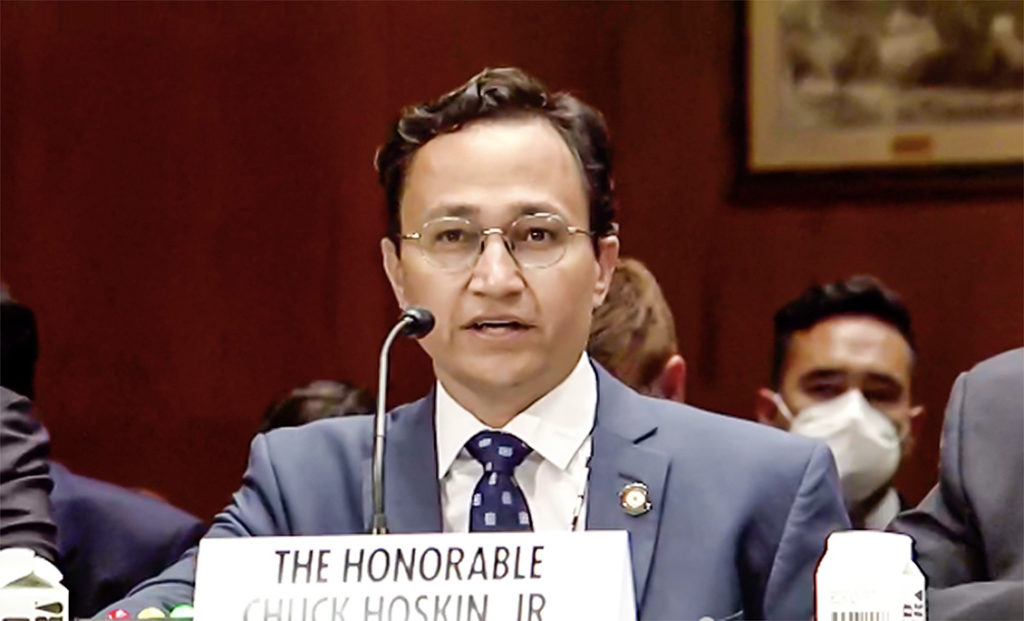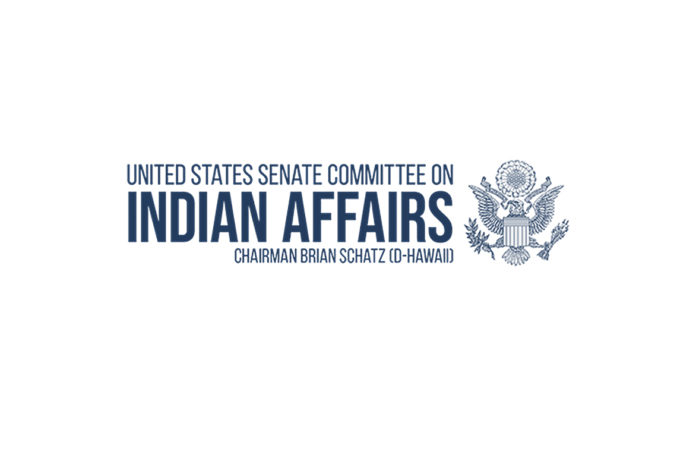WASHINGTON, D.C. – U.S. Senator Brian Schatz (D-Hawai‘i), Chairman of the Senate Committee on Indian Affairs, led an oversight hearing titled, “Oversight Hearing on Select Provisions of the 1866 Reconstruction Treaties Between the United States and Oklahoma Tribes.”
In his opening statement, Schatz explained his reason for holding the hearing:
“For first time in the history of the United States Senate, [the Choctaw, Chickasaw, Cherokee, Muscogee Creek, and Seminole Nations], Freedmen descendants, and the administration have an opportunity to present their views on the 1866 Treaties for the record,” said Chairman Schatz. “I understand and acknowledge that this is a difficult conversation because this issue, at its core, involves injustices perpetrated by the United States government more than a century ago against both Native Americans and African Americans. It is emotionally charged for many, and for good reason – years-long litigation and disagreement over the citizenship status of Freedmen descendants among the Five Treaty Tribes has divided communities – and even divided individual families. But disagreements cannot get resolved in silence.”
The following witnesses participated in the oversight hearing:
- Maxine Waters, U.S. Representative, 43rd Congressional District of California, Washington, D.C.
- Bryan Newland, Assistant Secretary – Indian Affairs, U.S. Department of the Interior, Washington, D.C.
- Chuck Hoskin, Jr., Principal Chief, The Cherokee Nation, Tahlequah, OK
- Lewis J. Johnson, Chief, Seminole Nation of Oklahoma, Wewoka, OK (Accompanied by the Honorable Brian Palmer, Assistant Chief, Seminole Nation of Oklahoma)
- Michael Burrage, General Counsel, Choctaw Nation, Durant, OK
- Jonodev Chaudhuri, Ambassador, Muscogee (Creek) Nation, Okmulgee, OK
- Stephen Greetham, Senior Counsel, Chickasaw Nation, Oklahoma City, OK
- Marilyn Vann, President, Descendants of Freedmen of the Five Tribes Association, Oklahoma City, OK

In his remarks, Cherokee Nation Principal Chief Chuck Hoskin Jr. said, in part to the committee, “Supreme Court Justice Hugo Black once wrote that ‘Great nations, like great men, should keep their promises.’ Cherokee Nation is keeping our promise to Cherokee Freedmen and their descendants under our Treaty of 1866. That treaty is a living, powerful, and foundational document that ties together every one of our agreements with the United States … I’m here today because it is a moral imperative that I be here. I’m here to proclaim that having finally kept our promise to Cherokee Freedmen, Cherokee Nation is a better nation and a stronger nation. I’m here today representing a great nation committed to keeping its promise.”













































